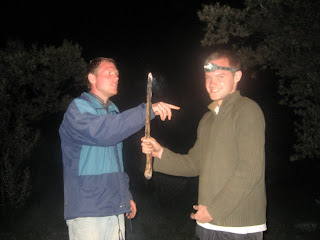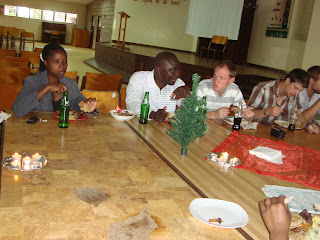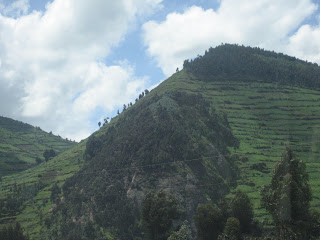The inspiration of Scripture means that God works through the authors of scripture to ensure the reliability and trustworthiness of scripture. The Bible is both divine and human in its attributes, and inspiration describes the process of how God was able to supervise and oversee the writing of scripture while maintaining genuine humanity in its production.
This concept of inspiration arises primarily from the second letter to Timothy:
But as for you, continue in what you have learned and have firmly believed, knowing from whom you learned it and how from childhood you have been acquainted with the sacred writings, which are able to make you wise for salvation through faith in Christ Jesus. All Scripture is breathed out by God and profitable for teaching, for reproof, for correction, and for training in righteousness, that the man of God may be competent, equipped for every good work” (2 Tim 3:14-17, ESV).Building an entire doctrine of inspiration from this one passage, however, is difficult. Craig Allert notes that the terms theopneustos (God-breathed) and hiera grammata (sacred writings) occur nowhere else in the Bible. He speculates that Paul may have coined the term theopneustos just for this occasion (A High View of Scripture? The Authority of the Bible and the Formation of the New Testament Canon [Grand Rapids, MI: Baker Academic, 2007], 151-155). Since it is difficult to know precisely what theopneustos denotes, building an overly specific doctrine of inspiration from this one text is treading on speculative ground.
While this passage does not specify how God “breathes out” scripture, slightly more clarify is found in 2 Peter 1:20-21: “…knowing this first of all, that no prophecy of Scripture comes from someone's own interpretation. For no prophecy was ever produced by the will of man, but men spoke from God as they were carried along by the Holy Spirit” (ESV). This passage is more specific in that it addresses prophecy, and not scripture in general. The mechanism for God’s activity is described as being “carried along by the Holy Spirit”, which could imply some kind of mental suggestion or direction.
The divine versus human paradox of scripture which must be maintained despite its logical challenges. Inspiration is truly an incredible concept, meaning that God is able to ensure that His message is accurately communicated, while allowing the individual authorial qualities of personality and style to remain. God has chosen the weak things of the world, including the potential confusion and ambiguity of language to reveal His holiness and majesty.
The incarnation is a helpful concept in addressing the question of translating the Holy Scriptures. While still maintaining his attributes of perfection and power, Jesus Christ limited Himself and took on the form of a man, even that of a servant (Eph 2). God also limits Himself to speaking to humans in their own language. Human language is finite, while God is infinite, and thus a complete representation of God in human language is impossible. John Calvin speaks of God as “accommodating” Himself to humanity, both through the revelation of scripture and the coming of His Son.
In theology, the most responsible (or orthodox) view is generally that which avoids the potential extremes on either side of the theological aisle. In this case, an extreme conservative position is dictation, meaning that God read the Bible aloud word-for-word and the human “authors” merely wrote down exactly what they heard. This results from an overemphasis on the authority of the Bible.
Ultimate authority does not rest in the Bible, but in God. To elevate anything else, even the scriptures, to the status of God is idolatry. Elements of Karl Barth’s view of revelation are helpful in that the “Word of God” is first and foremost Christ Himself, as described in John 1. The Scriptures become the “Word of God” as they point to Christ and His work. However, this order should not be reversed; Jesus is alive, desiring a relationship to us, and the Scriptures are the written record we have of His life and ministry.
On the other hand, to deny any divine activity of God in the writing and transmission of scripture is to go too far in the opposite extreme. God is active in the writing of the Bible, and the human qualities cannot take precedence. The Bible does not contain merely the whims of musings of religious heroes of old. Rather, it is indeed the message of God.
For translation, this means that care must be taken in accurately representing the meaning of the Bible. While every word is important, the cultural meaning of idioms and phrases take priority over a slavish literalism. Scripture is not ensconced in a veneer of plenary structure which transfers exactly from language to language. It is culturally and linguistic specific, and these nuances must be taken into account when translating.
The guidance of the Holy Spirit must be sought when translating the Bible. Translations today are not inspired in the same way as the original scriptures, but this does not mean that the activity of the Holy Spirit has ceased. God is still active in His church, and still desires His message to reach all people. Translation is an essential component of this endeavor, and continues the process of God coming to us, speaking in the words we understand. What could be a more clear representation of God’s mercy than His care in allowing the message of the Bible to be expressed in any human language? Christianity is not a religious pilgrimage where all those desiring salvation must come to Jerusalem and learn Hebrew or Aramaic.
Inspiration is a beautiful concept meaning that God has spoken through the Bible. Not only has God spoken, but He has done so in the language of earth—not of heaven. The original message came in the specific languages of Greek, Hebrew and Aramaic, but can be translated into any of the languages spoken under the sun. As the missionary movement continues to reach out and make disciples of all nations, translation is being used of God to replay the divine message of salvation and grace into all the languages of the world.




























